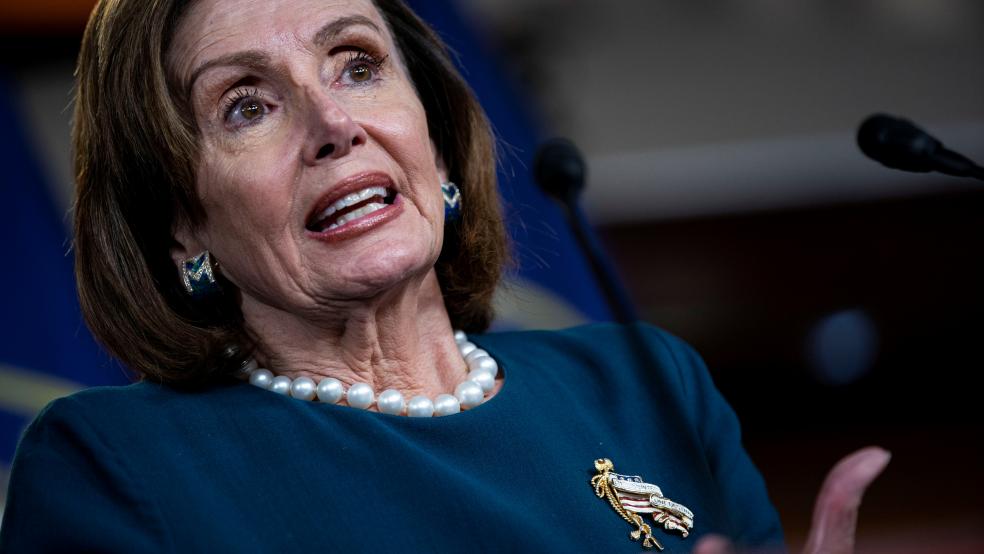The Build Back Better plan that the White House issued Thursday doesn’t include a proposal to allow Medicare to negotiate prescription drug prices, an idea with broad public support that President Joe Biden backs, as do many other Democrats and patient advocates. But Democrats haven’t completely abandoned pricing reforms even as intraparty differences have made it difficult to reach consensus on a plan that can garner enough votes to pass given the party’s narrow majority in the House and an evenly divided Senate.
House Speaker Nancy Pelosi’s office is working to drum up support for a version of the plan that would allow Medicare to negotiate prices for a narrower group of drugs, STAT News reports.
The latest proposal is being developed by House Energy and Commerce Committee Chair Frank Pallone (D-NJ) and Rep. Scott Peters (D-CA), who had objected to a broader reform plan included in a House version of the Build Back Better plan due to concerns that it would hurt drug development and innovation. "We're going to get a bill that has negotiated prices, and that's going to make a difference in terms of people being able to afford their drugs," Pallone said Thursday evening, according to The Hill.
The new proposal would allow negotiations on medications administered by doctors (Medicare Part B) and at the pharmacy counter (Part D) — but only after the drugs were past the “exclusivity period” granted by the Food and Drug Administration to protect them from competition. “The tentative deal would also penalize drug makers for raising prices faster than inflation in both the employer-sponsored insurance market and Medicare,” STAT’s Rachel Cohrs writes. “Seniors would have their out-of-pocket drug costs capped each year.”
Peters’s office told reporters that he will require the support of 50 senators before committing to a deal.
That will likely put the focus back on Sen. Kyrsten Sinema (D-AZ), who supports the idea of lowering drug prices but opposes the broad reforms and negotiating power included in past Democratic legislation. Sinema reportedly reached a deal with Biden on a plan that would limit the medications subject to Medicare negotiations in line with a proposal from Peters, but the idea was nevertheless left out of the framework announced by the White House Thursday. “Many progressives view the Peters proposal as insufficient, and a senior administration official said that drug pricing reform lacks the votes in Congress at the moment to advance,” Politico reported.
A long history of failure: If Democrats fail to reach an agreement on drug pricing changes, Biden would join the roster of recent presidents who have seen their reform efforts thwarted thanks in large part to the fierce lobbying efforts of thousands of pharmaceutical industry representatives, The Washington Post’s Dan Diamond and Amy Goldstein write:
“For nearly 30 years, U.S. presidents have tried and failed to contain the price of drugs like insulin. Now Biden appears likely to join a list which includes former presidents Bill Clinton, Barack Obama and Donald Trump. All of them pledged to tackle high drug costs, and all of them failed at the hands of the deep-pocketed industry, which has spent more than $1 billion on lobbying and advertising over two decades to torpedo initiatives that could rein in its profits, according to data tracked by OpenSecrets, a government transparency group. Which is why, experts say, Americans pay roughly twice as much for their prescriptions as consumers in comparable countries.”
Both Sinema and Peters have received hundreds of thousands of dollars in campaign contributions from the pharmaceutical industry, but a spokesman for PhRMA, the powerful drug industry trade group, downplayed the role of donations. “I can’t speak to why a member of Congress may take a certain position on a certain issue,” PhRMA’s Brian Newell told the Post. “Our focus has been educating policymakers about the solutions we are for to lower costs for patients and the concerns we have with proposals like direct government negotiations.”
The bottom line: “Barring a last-minute reversal on Capitol Hill, the United States will continue to be an outlier among wealthy, Western nations with such a scant government role in determining the prices consumers pay for the medicines they need and, as a result, drug costs far out of line with those in other countries,” the Post’s Diamond and Goldstein write. And such continued failure comes at a high cost: The Post cites one estimate by researchers that said that the government could have saved between $1 billion and $4.4 billion in just one year had Medicare been allowed to negotiate the price of just one drug, insulin.





